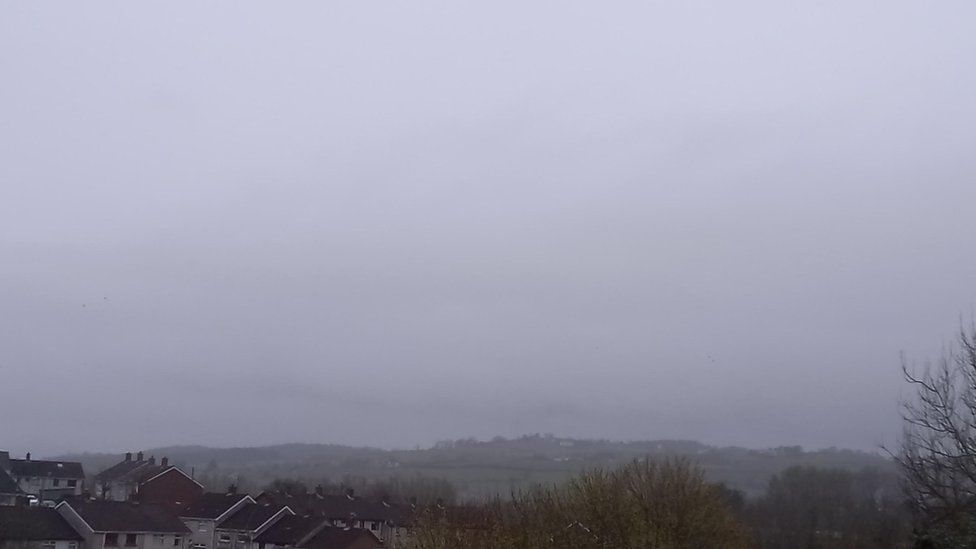
“No sign of Eclipse , unfortunately”: A BBC Weather Watcher sent in this picture of the clouds over Dundonald, Co Down in Northern Ireland
People hoping to glimpse the eclipse in the UK were left disappointed by cloudy skies and missed out on the phenomenon.
A solar eclipse – when the Moon passes between Earth and the Sun, obscuring the view of the Sun from Earth – took place on Monday.
Tens of millions of people in the US watched it sweep across a broad swathe of North America.
But experts doubted whether anyone in the UK was able to witness a partial eclipse because of the weather.
A partial eclipse – where a little bit of the Sun is covered by the Moon – would have been visible from western parts of the UK from 19:55 BST until sunset.
“I’m wondering whether or not anybody in the UK actually saw it,” said Dr Robert Massey, deputy executive director at the Royal Astronomical Society.
“There seem to be people saying it’s cloudy in Cornwall, cloudy in west Wales – there’s an outside chance people might be seeing it from a youth hostel on the Isle of Harris, in the Western Isles.”
Met Office forecaster Simon Partridge added: “The chances are most of England and Wales probably wouldn’t have seen it anyway.”
He added that outside the north-west of Scotland, the eclipse would have been “very, very small” anyway and “probably not actually noticeable” even if clouds had not obscured it.
The next total solar eclipse visible from the UK will not be for another six decades, in 2090. The last one was in 1999.
A total solar eclipse is scheduled for parts of Europe and North America in 2026.
On social media, Britons shared pictures of solid grey clouds overhead, with some joking and calling the view “breathtaking” and “beautiful”.
Image source, BBC Weather Watchers/Foggy B
“Pembrokeshire Eclipse – so near but so far!” said this Weather Watcher
But Prof Don Pollacco, from the department of physics at the University of Warwick who travelled to Texas to view it, said British spectators did not miss much because “partial eclipses are really boring” anyway.
“I wouldn’t bother watching any partial eclipses – I think they’re a waste of time,” he said.
He described total eclipses as “very magical”, adding: “I’m a scientist, and I’m saying it’s magical.”
In Mexico, the US and Canada, many were treated to a truly breathtaking display of the Sun’s outer atmosphere, or corona, which is usually obscured by its own intense glare.
People gathered in groups, welcoming the moment with choruses of claps and gasps.
Louis Boulet, who watched the eclipse from the other Cornwall in eastern Canada, described it as “a mixture of cosmic beauty and terror”.
Watch: Stunning images of the total solar eclipse crossing North America








